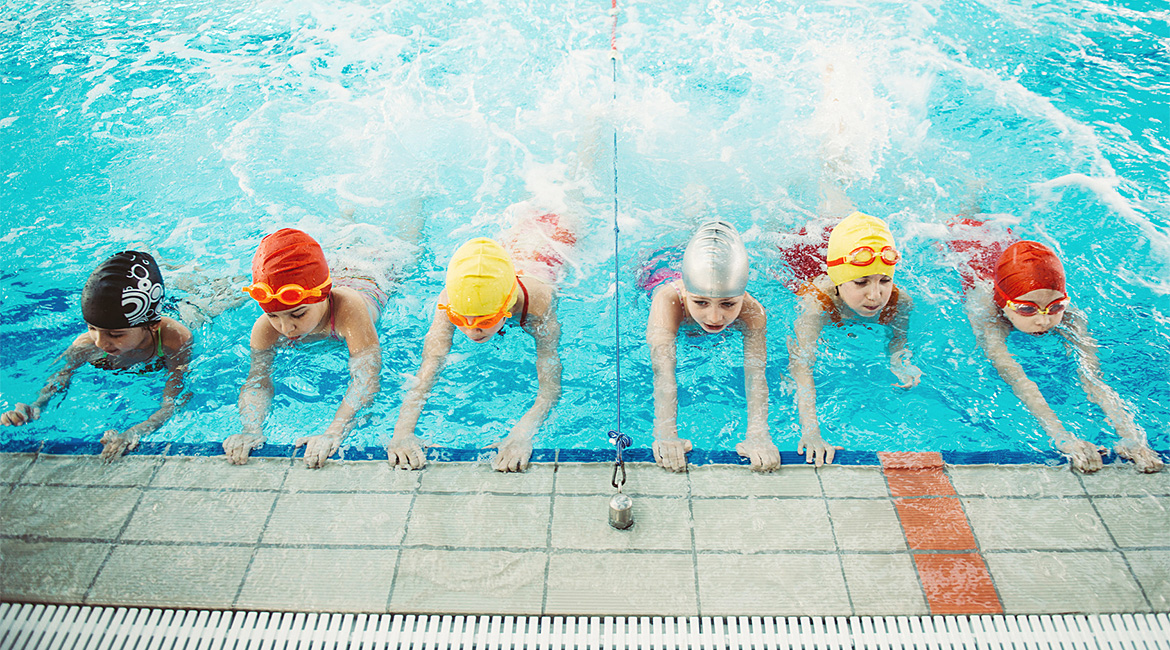Starting Sports
Playing a sport can help your child in so many different ways. Physically, your child can increase their fine motor skills and help stave off obesity. Socially, they can learn to make friends and work in a team. Cognitively, sports will help your child process constructive criticism and look at the world in a different way. Though these are all amazing reasons to start playing an organized sport, the best part is that playing a sport can be a ton of fun.
Getting Ready
Most children aren’t ready for an actual organized sport until they are about 6 years old. This is because children from the ages of about 2 to 5 are still fine-tuning their motor skills and may not yet have the skills necessary for complex sports like football and volleyball. The best way to get your child ready for sports is to let them play. At this age, they should be playing ball, running around the playground, swinging, climbing and learning to skip and hop. Focusing on any of these more than the other can delay the development of the other skills. In the beginning, the best way to prepare for sports is to have playtime each week.
 Choosing A Sport
Choosing A Sport
When a child is under the age of 12, experts recommend that they try a variety of different sports instead of honing in on just one sport. Having at least three sports to play throughout the year can help prevent burnout, injuries of overused muscles and can help children find an activity that they truly will love. Complicated sports may be modified to help children grasp smaller concepts before introducing more complex styles of game play. Experts agree that letting your children experiment with different sports gives them a larger chance of continuing with the sports into high school and then at the college level.
Game Prep
When your child does decide to start trying out sports, it’s important to talk to them about what will occur and the ground rules for playing. Let them know they should listen to their coach and be comfortable trying new things. Let them also know that it’s okay if they don’t win and that’s it’s more important that they have fun. When practicing with your child, make sure the emphasis is on fun instead of over-stressing the rules. Learning through play will be a slow process with many ups and downs.
Scheduling Breaks
Some leagues can get a little crazy when it comes to your little one’s schedule. Make sure you choose a team that allows your child to experience the sport in a fun way without too much pressure. If your child is having several practices and games each week without a lot of recovery time, it may be time to think about finding a less stressful sport or league. You should also make sure your child gets a few months off each year. Going into sports with too much intensity can cause burnout at a young age.
Don’t Compare
You want to be careful not to compare your child’s ability with other children. Kids develop their motor skills in different ways and at different times. Just because your child isn’t excelling at a sport at 5, it doesn’t mean they won’t excel at that same sport at 15. Give your child a little time and faith to grow. Be mindful of the words you say when talking about other children’s athletic ability so that your child can gain confidence in a supportive and encouraging environment.
Play It Safe
From a young age, you’ll want to put a big emphasis on safety during play. Make sure you always use the proper safety equipment like goggles, protective clothing and gear that fits your child correctly. Make sure you understand the signs and symptoms of concussions, especially in sports like soccer and football. Make sure you and your child are aware of the coach’s expectations and the rules of the game. And make sure the league has all the correct safety guidelines in place for game day. For every practice and game outside, apply sunblock to your child. Make sure you always keep your child hydrated before, during and after the game.
Talk It Out
The best way to gauge how your child is feeling about a particular sport is simply to let them try it out for a while and then ask them how they feel about it. They will give you an honest answer and you should always go with that decision. Just because you played a sport, it does not mean your child will love that sport as well. Let them choose the sport that they love based on their own ability and perception. Also, help talk them through any questions they are confused about along the way like why they didn’t get that position they wanted or what the coach meant by a certain critique. Your advice and guidance will always be appreciated.
Starting sports with your child is a fun and exciting time. As long as you remember that it really is all about the fun and that it’s ultimately your child’s decision about which sports they love, you’ll be well on your way to spending those Friday nights in a pair of fold-out chairs, cheering for your favorite athlete!


 Choosing A Sport
Choosing A Sport

